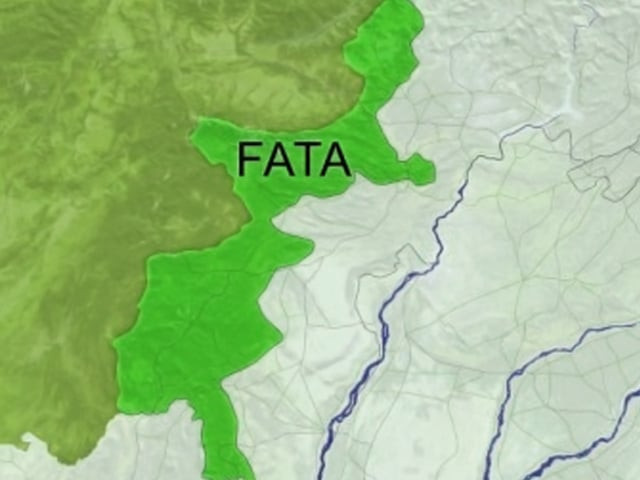Breaking the mould: Elders deliberate over reinventing FATA
Elders demand a common law judicial system, removal of the FCR, accountability bodies.

Elders from all Fata agencies gathered to deliberate and coordinate their efforts to mainstream the tribal belt.
Tribal elders have asked the incoming government to take immediate steps to reform the Federally Administered Tribal Areas (Fata) and remove political administrations currently in place.
Elders from all Fata agencies gathered at a local hotel on Saturday to deliberate and coordinate their efforts to mainstream the tribal belt.
“Tribal people have been kept in the dark and the so-called process of reforms by the previous government was only meant to deceive them,” said Ghani Gul, a Mehsud elder from South Waziristan. He complained the residents of Fata have been hearing about ‘reform’ for the past 30 years, but no progress has been made.

The tribal elders also questioned the integrity of elections under the political administration and claimed the polls were not free and fair. Elders alleged only those candidates had been elected who ‘agreed’ with the administration. They found no reason to hope for change since the same people were elected on May 11.
Fata Coordination Council Chariman Tor Gul argued the Frontier Crimes Regulation (FCR) is not only against the constitution, but has also distorted the Pukhtun culture. “The FCR has given birth to a conservative society, which has restricted enlightenment.”
Elders pointed out the Fata tribunal, which once provided an easy means to justice, is headed by retired bureaucrats and is not free from the establishment’s influence. They demanded the federal government put in place a judicial system which has a high court, sessions court and appellate court which are free from external influence.

Their wish list included an accountability body for checks and balances and to audit funds allocated to the tribal areas. The body would ensure the money reaches the people it meant to serve.
Tribal elder Malik Khanmir Jan asked that the government extend the country’s constitution to Fata. “The reforms are formulated by one authority and implemented and administrated by another; there is no coordination between them.”
Khanmir Jan alleged the FATA Secretariat is staffed by people from the settled areas who have no knowledge about tribal issues.
Elders had conflicting views about the local governance system. Some were in favour of having a local government system while others called for the revival of the jirga system at the union council, city and agency levels.
They claimed the jirga would work to formulate and implement reforms, and restore peace at the same time. This would empower people at grass-root levels, enabling them to participate in overhauling the system according to their wishes.
Published in The Express Tribune, May 26th, 2013.













COMMENTS
Comments are moderated and generally will be posted if they are on-topic and not abusive.
For more information, please see our Comments FAQ